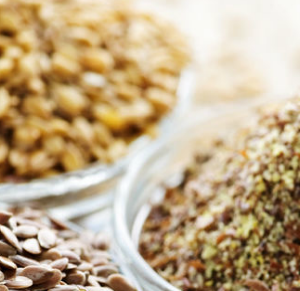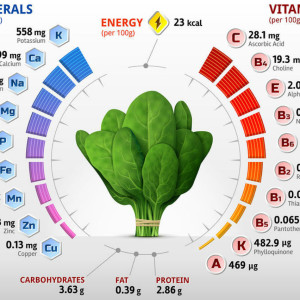
Role of magnesium supplementation in the treatment of depression: A randomized clinical trial – an article from Plos One.
Although this journal article does not specifically address magnesium’s role in cancer, I would be remiss if I did not include this article in the May issue.
According to the World Health Organization, 350 million people worldwide suffer from depression, and depression is a leading cause of disability. Many, if not most patients suffering from cancer, experience anxiety and depression. Unfortunately, many of the commonly used antidepressants are often not effective for individuals, and there is even a risk that these drugs can worsen depression, and even cause suicidal ideation.
What is particularly exciting about this study is that magnesium was effective in improving scores in patients who were already using pharmacologic antidepressants. It would be interesting to see a study comparing magnesium to SSRIs, but that study will of course never receive funding.
Cancer patients who are using opiates commonly suffer from constipation, so the use of magnesium citrate can help with constipation and depression/anxiety simultaneously.
Although in this study, the investigators used magnesium chloride, I prefer to use magnesium glycinate for patients without constipation, because of the calming effect of glycine on the CNS. If constipation is an issue, I prefer magnesium citrate.
Keep in mind that in this study, they used 248 mg of elemental magnesium per day. Magnesium citrate contains 16% elemental magnesium and magnesium glycinate contains 14% elemental magnesium, so when you prescribe it, be sure your calculations are correct.
healthyliving March 13th, 2019
Tags: antidepressants, clinical trial, depression, depression treatment, magnesium, magnesium supplement, trial

Flaxseed Lignans and Cancer- an article from Cancer Therapy Advisor can be accessed here:
Comments from Dr. Rosenberg on the Article:
Flaxseed has shown to inhibit proliferation of many different types of cancer in in-vitro and animal studies. The mechanisms of action are numerous, to include decreased expression of estrogen receptors, TNF-alpha, MMP-1, VEGF, and IL-6. In addition, repeat biopsies have actually shown a decrease in cancer cell proliferation (as measured by Ki-67) after one month of flaxseed (30 g per day). Although most of the research has been done with breast cancer, flaxseed seems to be effective on many cancers, regardless of estrogen expression.
So why aren’t oncologists recommending cancer patients (or those at high risk) take 30 g of flaxseed per day? Why don’t oncologists make recommendations regarding diet at all? Certainly, there have been any clinical trials on the ketogenic diet and cancer. The problem is that we have minimal to no prospective randomized human data. Even when institutions attempt to perform these trials, the accrual is so poor that the data is not statistically significant.
Having said all of the above, my recommendations for diet in the cancer patient, as I said previously, is a plan-based low glycemic diet. In addition, I believe we should all add 30 g of flaxseed daily.
healthyliving November 19th, 2018
Posted In: cancer care, Nutrition
Tags: cancer diet, flaxseed

If you love coffee like I do, you wouldn’t think of starting your day without a cup or two of your favorite coffee. Like me, it helps your brain wake up, helps you think more clearly, and helps you get on your way for the day.
But did you know that drinking coffee regularly has another really important benefit – especially as you get older?
Prevent Retinal Damage with Your Morning Coffee
As amazing as that sounds, a recent study out of Cornell University proved it to be true. Researchers found that drinking a daily cup of coffee can help prevent vision damage, especially the type that comes with getting older – retinal damage.
And if you gave up coffee drinking because of the caffeine you can still get the vision protection. That’s because the active ingredient in coffee that protects the retina is CLA – chlorogenic acid.
Researchers found that chlorogenic acid is a powerful antioxidant found previously to prevent retinal damage in lab animals. The retina is the part of your eye responsible for refracting light coming into your eye. It’s what allows you to make visual sense of the world through delineating images.
To do this important job, the retina needs a lot of oxygen. This can make it more subject to oxidative stress from free radicals. In lab animals tested, nitric oxide was administered to create oxidative stress and retinal damage. Yet, the animals who received a pre-treatment with chlorogenic acid did not develop retinal damage.
As a result, exciting new avenues of research are being undertaken in the study of CLA for treatment of retinal damage. If CLA is found to cross the blood retinal barrier – meaning CLA can be carried through the blood to the retina – then doctors can simply prescribe a certain type of coffee to drink to prevent/treat retinal damage. But for now, you can get the same benefit just by drinking your same cup of coffee every morning.
But protecting the retina isn’t the only health benefit recently attributed to coffee. It has also been found to cut the risk of these other age-related conditions as well:
• Parkinson’s disease
• Type 2 diabetes – lowers blood
sugar levels.
• Alzheimer disease – fights
development of beta amyloid
plaques.
• Prostate cancer
• Age-related cognitive decline
The chlorogenic acid in coffee seems to confer anti-aging benefits through boosting the immune system via its antioxidant capacity. You can also get chlorogenic acid in a tablet form from green coffee bean extract.
What Else Can You Do To Protect Your Retina?
Protecting your retina essentially involves fighting oxidative stress damage from free radicals. This can increase as you get older if you don’t take steps to block, or neutralize, it. Besides your daily coffee, here are some other things you can do to protect your retina:
1. Nutrition. A high antioxidant diet helps minimize oxidative stress throughout your entire body. Antioxidants include astaxanthin, lutein, zeaxanthin, vitamins A, C, E, zinc, gingko biloba, turmeric, selenium. Omega-3 fatty acids, like those found in fish, krill or flax seed oil, have also been found to be beneficial to the retina. They help prevent blood vessel damage/loss which leads to the formation of new, deformed blood vessels. These deformed blood vessels lead to the retina pulling away from the back of the eye causing blindness. Also, limit/omit refined sugars. These can cause a lot of inflammation in your body from too much acid.
2. Protection. Bright sunlight can damage not only the retina but the lens and result in cataracts. Wear protective sunglasses with a high UV ray blocking capacity. The best glasses block 100% of UV rays and HEV (high energy visible) rays. Glasses that wrap further around to cover the entire eye prevents light getting in from the side. Also, prevent trauma to the eye. Retinal damage/ detachments occur most often after trauma to the eye.
3. Regular eye check-ups. Seeing an ophthalmologist once a year – especially over age 50, and if you’re diabetic – is important. A retinal exam is done where special drops are placed in your eye. The eye doctor is then able to see the back of the eye, where the retina is, to look for tears, floaters, etc. Dark spots that bounce around in your vision are called “floaters”. They occur when tiny bits of vitreous humor break away. They are usually harmless but could be a warning sign of retinal detachment – especially if you have a “shower” of them occur at once.
4. Regular medical care. As you get older, it’s important to also get regular medical check-ups and lab tests to look for diabetes. It’s one of the major vision robbing conditions and people over age 50 are at higher risk of developing type 2 diabetes. In addition, cardiovascular disease can also affect your eyes and vision. If your heart’s blood pumping ability is impaired, your eyes won’t receive the nutrients and oxygen they need.
5. Aerobic Exercise. Your eyes also benefit from aerobic exercise as much as the rest of you does. Aerobic exercise builds your oxygen intake capacity and that oxygen travels via your blood stream to your eyes.
Protecting your vision at any age is important but especially so as you get older. It should be one of the primary concerns in fighting aging. Keeping a healthy vision will allow you to stay independent and maintain your activity level as you get older. Having a simple cup – or 2 – of coffee every morning is a good way to start.
healthyliving February 20th, 2017
Posted In: Healthy Agin, Healthy Lifestyle, Nutrition
Tags: eye care, healthy aging, healthy eyes, retinal damage

Nutrient profiling isn’t new. Alternative health researchers, and naturopath doctors, have been doing it for decades.
Simply said, this is the process of identifying which foods, vitamins, minerals, etc… pack the biggest nutritional punch.
Recently, the CDC got into nutrient profiling as well. They’ve identified certain foods they
claim are most strongly associated with reduced chronic disease risk. You might be surprised to learn what they are, you may already be eating many of them every day.
Like many people, you’re probably eating a
lot more salads. Did you know the CDC found that several salad greens and foods really pack a major nutritional punch? These common salad staples were found to contain 17 significant vitamins, minerals, and phytochemicals, in quantities found to offer the best protection to your health.
These include B vitamins thiamine, folate, riboflavin, niacin; vitamins C, D, E and K3. and minerals like potassium, zinc, iron and calcium. It also includes other nutrients like Protein and fiber.
The Top 5 Powerhouse Greens Rated By the CDC:
1. Watercress: This green scored a whopping 100% on the CDC’s nutrient density scale.
2. Chinese Cabbage: This Asian favorite scored second at 91.9% on the scale.
3. Chard: Commonly known as Swiss chard, this green came in third at
89.27% on the scale.
4. Beet Greens: These are great raw in salads and cooked in various vegetable dishes. Beet greens scored 87.08% on the scale.
5. Spinach: A favorite in summer salads, this green power food came in fifth at 86.43% on the scale.
While supplements are great to boost certain nutrients in your diet, especially if you’re trying to lose weight, the bulk of your nutrition should come from the foods you eat. This list of powerhouse greens is a great place to start.
healthyliving January 17th, 2017
Tags: beet greens, chard, chinese cabbage, healthy nutrition, spinach, watercress

Many people don’t realize that your brain is very sensitive to your nutrition, and works best when it gets the nutrients it needs. Many of my patients, and perhaps you, may not get enough brain food. These include good fats like those from fish, nuts, olives, etc. Studies have shown that Omega-3 fats, particularly the DHA portion of them, are particularly beneficial to your brain health and memory.
Your brain is also about 75% water and thrives on you being optimally hydrated. When you’re dehydrated, your thinking becomes fuzzy; you become confused, and can’t seem to connect your thoughts very well.
Your brain also needs glucose (sugar) to function correctly. If you’ve ever gone on a low carb diet for more than a few days, you may have noticed that your mood and your clear thinking took a nose dive. That’s because your brain needs measured amounts of glucose to power its functions. Your body processes glucose from the foods you eat. On a low carbohydrate diet, it takes your body much longer to break down proteins into glucose.
But that doesn’t mean that eating a high carbohydrate diet will be better for your brain function. If your brain is bombarded by high levels of sugar in your blood from a high carbohydrate/sugar diet, it has just the opposite effect. Your short term memory (where you put your car keys) becomes impaired, it takes you much longer to retrieve stored information (someone’s name), and it becomes harder to concentrate or learn anything.
In short, all your cognitive functions become impaired with higher blood sugar levels. Lately, researchers have been proving it over and over. For example, German researchers out of Charite-University in Berlin recently looked at mental functioning and brain structure of middle aged and elderly adults. They found that for every point increase in Hemoglobin A1c (measures blood sugar averages over 3 months), there was a corresponding decrease in the participants recall, learning ability and memory consolidation.
They also found that the participant’s brain structure changed as well. MRI brain scans revealed that the brains of those with chronically elevated glucose levels lost volume, specifically in the hippocampus areas. This is the area of the brain associated with cognitive functions like learning and memory. These researchers concluded that lifestyle changes to control blood sugar levels could likely help prevent age-related cognitive decline.
healthyliving January 3rd, 2017